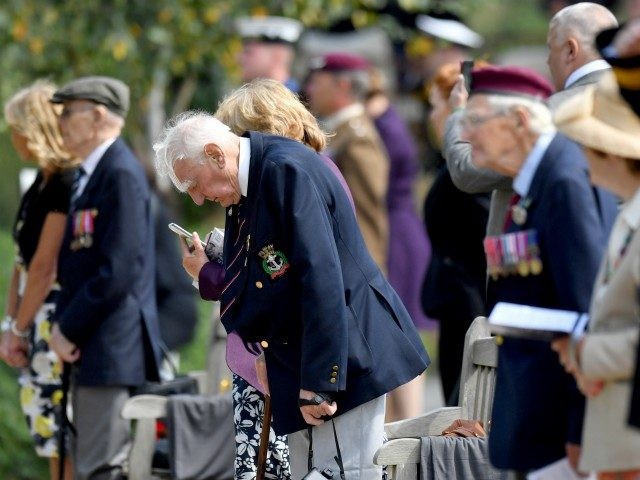The BBC removed a musical version of a poem penned by Rudyard Kipling from the celebrations commemorating the 75th anniversary of the Victory over Japan Day, following complaints from a Jamaican-born opera singer, who claimed the poem has “cultural superiority” embedded in the verse.
A musical version of “Mandalay”, the 1890 poem by Rudyard Kipling — the author of The Jungle Book — was set to be featured on the British public broadcaster’s televised VJ Day celebration, as it has become an anthem often used to hail the heroics of veterans of the UK’s campaign in Burma during the Second World War.
The poem, which described a British soldier’s love for Burma, has run afoul of modern-day woke sensibilities for a line which read: “An’ a-wastin’ Christian kisses on an’ eathen idol’s foot”, in reference to a statue of Buddha — the figurehead of the predominant religion of the East Asian country.
A Jamaican-born opera singer, Sir Willard White, who was tasked with singing the ballad, said that he “felt uneasy singing lines about one god being superior to another”.
“Much-needed discussions are taking place challenging assumptions of cultural superiority and the inequalities caused by them. As a proud human being, I couldn’t sing such sentiments with a clear conscience, and after raising this with the BBC production team, it was mutually agreed that another work be selected,” Sir Willard, said according to The Times.
“I would ask everyone to focus on the debt we owe those who so bravely fought across Asia and the Pacific to bring an end to this terrible war and to remember that those who fought represented all the world’s major religions,” the singer added.
Delingpole: Top Newsreader Alastair Stewart Fired for Quoting ‘Racist’ Shakespeare https://t.co/xBS6scur9W
— Breitbart London (@BreitbartLondon) January 30, 2020
The BBC refused to explain the decision to drop the ballad. A spokesman for the broadcaster told the Daily Mail: “Many songs and contributions are considered when planning events such as this, with the final running order only being confirmed shortly before recording.”
The Burma Star Association, the British veterans’ association for those who served in the Burma Campaign of World War II, which still has 1,400 members alive worldwide, said that they were not consulted on the decision.
The administrator of the veterans’ group, Phil Crawley, said that “Mandalay” was a favourite marching song for the soldiers in the 14th Army in Burma, and thus has a strong emotional significance for them.
The Road to Mandalay by Rudyard Kipling read by Charles Dance on the 70th anniversary commemoration for VJ Day in London. https://t.co/jN3aO0rV1g
— Rɪᴄʜᴀʀᴅ Kᴇᴍᴘ ⋁ (@COLRICHARDKEMP) August 13, 2020
“In 2015, a major part of the Service on Horse Guards Parade was a reading of ‘Mandalay’ by Charles Dance. Many members have asked for it to be played at their final commitment,” he said.
Rudyard Kipling has increasingly become a target for the far-left in the United Kingdom. In 2018, a mob of students defaced a copy of Kipling’s poem “If” in the Student Union of Manchester University, claiming that the celebrated British writer was racist.
The leftist students replaced the poem with a verse penned by African-American poet Maya Angelou.
BBC Warns It Has ‘Reported’ People Critical of Poem About ‘Non-Binary’ Haircut Struggles https://t.co/6RqFkxBfs6
— Breitbart London (@BreitbartLondon) February 21, 2020
Follow Kurt on Twitter at @KurtZindulka

COMMENTS
Please let us know if you're having issues with commenting.